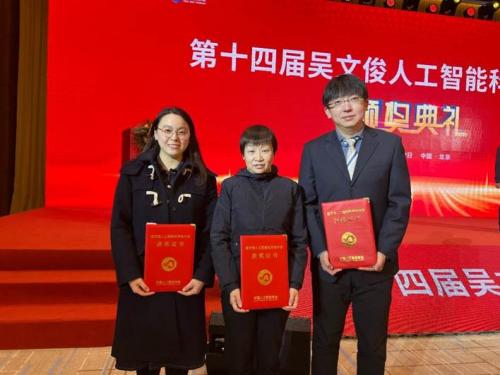
Honoring Excellence: Wu Wenjun Award for Di Huang—Our Former PhD Student—and our Longtime Collaborators
The Wu Wenjun Artificial Intelligence Science and Technology Award is named after Mr. Wu Wenjun, a world-renowned Chinese scientist in the field of intelligent science and technology, a master mathematician, a pioneer of artificial intelligence, the founding leader of AI research in China, the first recipient of the national top science and technology award, and a member of the Chinese Academy of Sciences. Established with the support of civil society, the award is qualified to nominate candidates for the National Science and Technology Awards and is recognized as the "highest honor in intelligent science and technology in China."
The award-winning project from our lab, "Efficient Representation Learning for Complex Visual Tasks", focused on in-depth research in visual representation, overcoming efficiency bottlenecks in model structure, sample utilization, and cross-domain transfer. The project has established a comprehensive theory and methodology for efficient visual representation learning. The results have been highly praised by domestic and international experts as "simple, efficient, and high-performing" and "state-of-the-art in performance." Some of these results have already been successfully applied in key government sectors and leading industrial enterprises, generating significant social and economic benefits.
